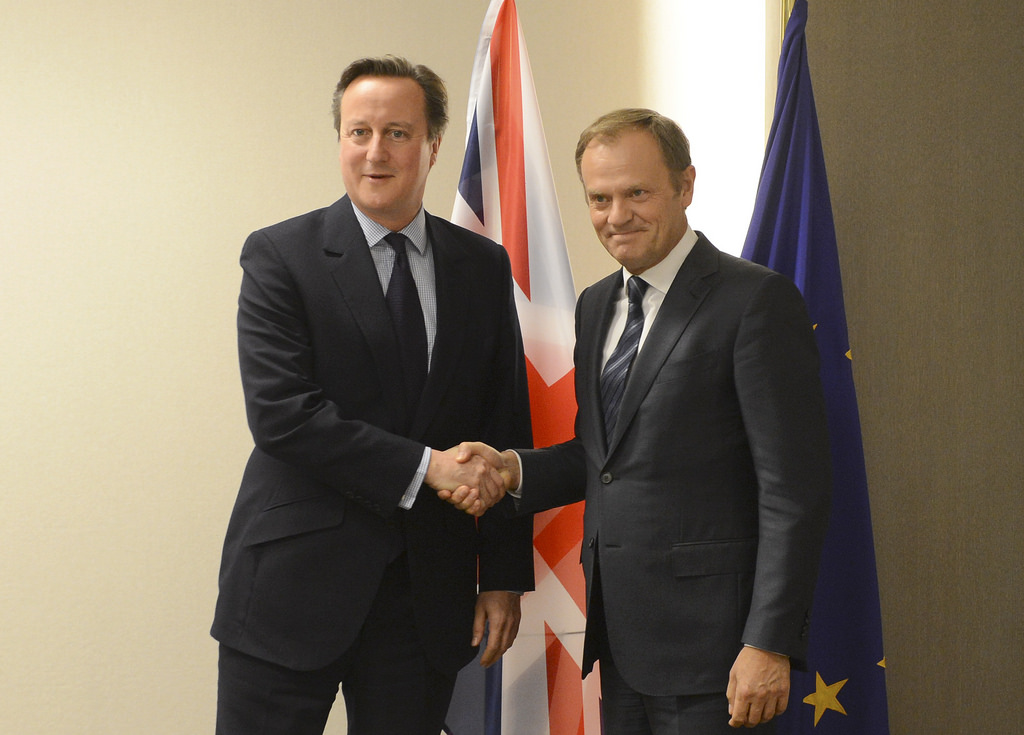By Paul Anderson, PhD Candidate in Politics at Canterbury Christ Church University
Discussions concerning the United Kingdom’s (UK) membership of the European Union (EU) are ongoing as David Cameron seeks to broker a deal on his renegotiation terms before a crucial summit in Brussels in just a few weeks. In spite of the prime minister’s optimism that an agreement can be swiftly reached, if the European Council’s president, Donald Tusk, is to be believed, much work remains to be done. Within the next 24 hours, intense negotiations will continue, and with over a fortnight to go before the Member State’s ‘get-together’, there is still time for negotiation. A successful outcome, that is, agreements on Cameron’s four prioritised areas – immigration, competitiveness, sovereignty and protection, would no doubt be the starting pistol for the European referendum campaigns; there is high speculation of a vote as soon as June this year. Polls on referendum voting intentions show that there is a division amongst the four nations of the United Kingdom (UK). In both Scotland and Northern Ireland there is a relatively strong majority of the electorate in favour of remaining. In Wales only a slight majority favour continued EU membership, whereas in England Euroscepticism pervades – a majority, albeit slim, support leaving the EU. These differentiated results therefore beg the question: Would a vote to leave the EU constitute a threat to the future of the Union?
Photo: Number 10
The results of the Scottish independence referendum in September 2014, where a small majority voted in favour of the Union, has reinvigorated debates concerning the constitutional layout of the UK. An important issue in these debates concerns the constitutional landscape of the UK as well as discussions pertaining to the forthcoming vote on Britain’s EU membership. Nicola Sturgeon, incumbent Scottish First Minister, during the independence campaign and in several interviews since, has made the position of her party on the European issue very clear: not only are the SNP a pro-European party, but should a majority of Scots vote to remain in the EU, and a majority of the English do not, this may precipitate a second referendum on Scottish independence. In other words, post-EU referendum we may find ourselves in a paradoxical situation – it may be the English electorate, as opposed to the Scots, who trigger Scotland’s secession from the UK.
A vote in favour of leaving the EU will not only have far-reaching consequences for Scotland, but also for the other constituent nations, particularly Northern Ireland. The already strained Northern Irish peace process may become further endangered in light of a vote to leave. Membership of the EU, for both the UK and Ireland, was instrumental in securing peace in Northern Ireland, yet if this supranational support no longer exists would dormant sectarian tensions reignite? The numerous economic, social and political cross-border initiatives would equally be damaged, a worrying predicament which may sour Northern Irish-Irish relations. Moreover, Northern Ireland is the only constituent nation of the UK which shares a land border with another EU country, Ireland. Should the UK end its EU membership this would, in theory, lead to the imposition of a physical border between the two countries with passport checks and custom controls. The free movement of people and trade would thus be severely constrained and result in incalculable challenges, not least politically.
Welsh public opinion, despite narrow support for remaining in the EU, appears largely in line with its Eurosceptic English counterpart. Nonetheless, with Wales’ reliance on European Structural Funds as well as finance from the Common Agricultural Policy (worth around €5 billion in the period 2007-2013), a vote to leave the EU would result in increasing levels of economic uncertainty in the Welsh valleys. Both Welsh Labour and Plaid Cymru are in favour of remaining, yet only time will tell if the Welsh electorate are equally convinced.
In the space of two years we will have seen two hugely important yet divisive referenda on the layout of the UK’s political and constitutional landscape. Opinion polls, cautiously observed following the unforeseen triumph of the Conservatives in last year’s general election, have consistently shown a narrow majority in favour of remaining in the EU (currently around 54%). Given that England houses circa 85% of the population, the vote will indisputably be decided there. However, unless there is a majority vote in all four nations of the UK, the result may be rejected as illegitimate or used as a catalyst for more radical change, namely, Scottish independence. The future of the Union is, once again, in the balance, with only one thing remaining certain: the imminent debates on the UK’s constitutional relationship with both its constituent nations and the EU will make for interesting observation.
 Politics
Politics Anna Vanaga
Anna Vanaga 410
410



2 comments on “A Disunited Kingdom? ‘Brexit’ and the UK’s constitutional landscape”